
Drunk driving crashes leave a trail of hurt, loss and carnage in their wake, yet the number of people caught over the limit on Bay of Plenty roads is rising.
For this story, the first in our Traumatic Toll series examining drink-driving harm, Sonya Bateson delves into “alarming” police data and speaks to those desperate to address the trend and prevent more deaths.
The number of drink drivers caught in the Bay of Plenty has hit a 12-year high and police are “shocked” by how drunk some people are at the wheel.
Police data shows 3065 drivers, or more than 50 per week, were caught driving over the limit in 2023.
Bay of Plenty road policing manager Inspector Logan Marsh says police are doing everything they can to stop drunk driving and the “devastating consequences that result from it”.
“Alarmingly, we’re still finding people who are drink-driving, day and night, and police have been shocked by how severely intoxicated some drivers are,” Marsh says.
“Seeing the numbers might be alarming for some people - it is for us.
“Police will continue to do all we can, but we also hope it creates a conversation in the community that it is unacceptable to see these levels of intoxicated drivers continue to get behind the wheel. There are no excuses and always an alternative. The message is simple - if you are driving, don’t drink.”
Preventing drink driving
The increase in drivers caught follows a higher rate of police breath testing in 2023.
Bay of Plenty Police breath screened more than 226,000 drivers across the district in 2023. Any driver stopped is breath-tested and police also run highly visible checkpoints.
Marsh says the busy summer months saw more people out celebrating and visitors to the region contributed to the number of breath tests.
The Bay of Plenty has dedicated Impairment Prevention Teams and police also work with other organisations on prevention education, especially with young drivers.
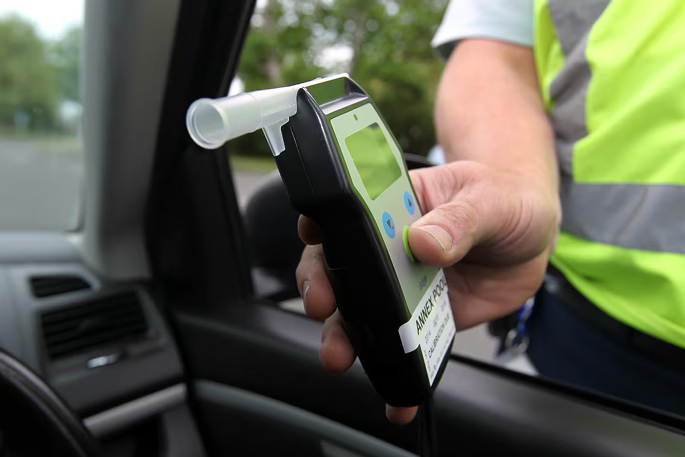 Bay of Plenty police use breath testing to prevent drink-driving. Photo / NZME.
Bay of Plenty police use breath testing to prevent drink-driving. Photo / NZME.
“It continues to disappoint us people still think it’s okay to drink and then get behind the wheel,” says Marsh.
“The people they put at risk are our families, our friends, and our colleagues, and we have to see the devastating effects.”
Dealing with the trauma
Fire and Emergency New Zealand Rotorua senior station officer Des Chan says it's a firefighter’s job to figure out how to undo a wreck to save a person – or remove a body – and to do that, it was important to be able to figure out what caused the crash.
“It’s not up to us to blame and that makes us unique. We will look after the person the same.”
Each firefighter has their own way of processing what they have experienced, says Chan, and they also work together to wind down after a particularly tough day by talking it out, sharing fish and chips together, or activities such as playing cards or petanque.
Learning to be open with each other goes a long way towards protecting mental health, says Chan.
“We know when it’s affected us. We can see it. We can feel it.”
“If we were individuals we would find it very hard. But together we can bounce off each other. We dissociate in some form to get through it. We try not to carry it on our shoulders too much.”
Hato Hone St John area operations manager for the Western Bay of Plenty Mat Delaney says ambulance officers witness first-hand the “devastating, sometimes fatal, and traumatic impacts” crashes have.
“These scenes are not only confronting for those injured, but also for the emergency services responding.”
Delaney says incidents involving an intoxicated driver are particularly frustrating as they may have been avoided. .
Western Bay head of road policing Senior Sergeant Wayne Hunter says drink-driving crashes are “entirely preventable”.
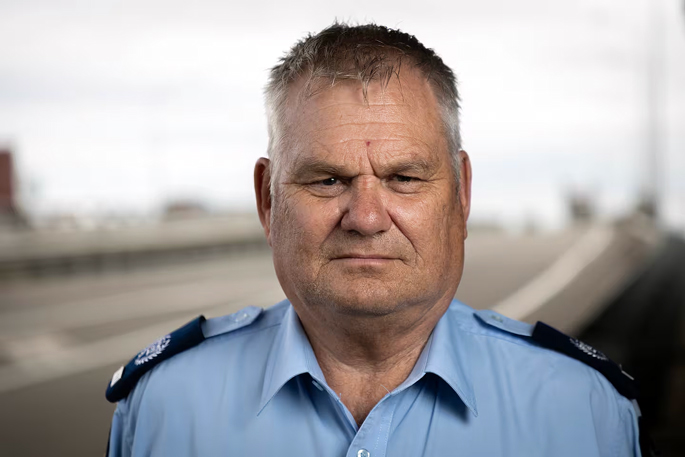 Western Bay of Plenty road policing manager Senior Sergeant Wayne Hunter. Photo / Alex Cairns.
Western Bay of Plenty road policing manager Senior Sergeant Wayne Hunter. Photo / Alex Cairns.
The obvious people directly affected by such a crash are the person’s friends, family and colleagues, but the harm spreads wider than that, says Hunter.
People who witness or come across a crash scene - innocent bystanders and random strangers - are affected, as are the emergency responder treating those involved and dealing with the resulting carnage.
“It affects them really, really badly in ways that people just don’t understand.
“There’s a whole lot of people that get involved and it’s just... it’s just not worth drink-driving.”
Changing our drinking culture
Alcohol Healthwatch graduate health promotion adviser Lizzie Barratt, originally from Katikati, says in her experience from growing up in small-town Bay of Plenty, there is a strong drink-driving culture among males, something she says aligns with statistics.
Ministry of Justice data for 2023 showed 77 per cent of those charged for driving under the influence were male.
“There is a very strong culture of fathers/men driving home from the pub drunk even if they are offered lifts by their kids or wives, because everyone else is doing the same thing.”
Barratt says explanations people give for drunk-driving include embarrassment being picked up while everyone else is driving, the person has been doing it for years and “knows the road”, or a lack of other viable transport options for people who lived rurally.
Alcohol Healthwatch executive director Andrew Galloway says he's pleased to see the results from increased breath screening, but there's cause for concern.
“The message that if you are drinking, don’t drive, is not getting through. We would strongly recommend increasing the use of alcohol interlock conditions to more offenders and work to create more comprehensive approaches including referrals for alcohol dependency for repeat offenders.”
Students Against Dangerous Driving (SADD), a charity that promotes safe road user behaviours, has Bay of Plenty college students as members.
Rotorua Boys’ High School prefect Harish Sawroop, 17, who is a SADD national leader, says many people, especially youths, thought there's nothing wrong with having a few drinks and driving.
“They think they can just get away with it and suffer no consequences,” says Harish.
“It is good to hear that the Government is increasing the focus on roadside alcohol testing. Unfortunately, the drinking culture in our country still stands and the testing is almost like treating the symptoms instead of attacking the root cause.”
Responses such as SADD’s peer-to-peer approach, annual conference and workshops were “so important to educate people to choose safer road user behaviours”.
Zeon Hetherington, 16, another SADD member at the school, Raukura, says while the fatality rate for on-road deaths has dropped significantly in recent decades, there's still a “mass amount” of preventable deaths on roads.
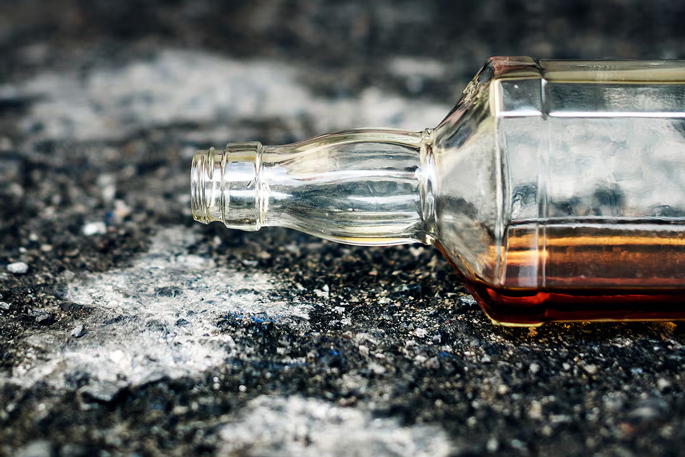 Drink driving is still an issue of concern among youths. Photo / 123RF.
Drink driving is still an issue of concern among youths. Photo / 123RF.
SADD general manager Donna Govorko says drink-driving numbers have reduced in the organisation’s 38 years. But, from an all-time low in 2013, numbers are rising again.
“It is a worrying trend, we need to ensure we do more to stop people dying on roads due to being impaired.
“We encourage people to plan before they party and know how they are going to get home safely.”
Helping the victims
Manaaki Tāngata Victim Support chief executive James McCulloch says the organisation helps thousands of people each year affected by fatal and serious injury crashes, including friends and family members of the bereaved, witnesses, and those who arrived at the scene.
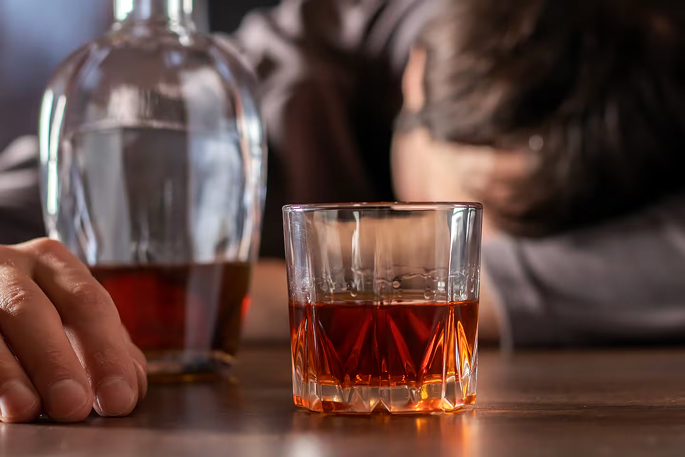 Drinking and driving can cause long-lasting harm. Photo / 123rf.
Drinking and driving can cause long-lasting harm. Photo / 123rf.
“The trauma experienced by victims can be profound and enduring.”
McCulloch says victims of alcohol-related road fatalities often carried an “additional burden of perceived preventable injustice”.
“The victims can struggle with a sense that these tragedies could have been avoided, adding a layer of frustration and anger to their grief.”
Victim Support provides immediate and short-term emotional support, practical assistance, information and referrals to other agencies, as well as support through the criminal justice system. McCulloch says drawn-out legal processes could exacerbate families’ distress as justice felt delayed and sometimes, when it arrived, insufficient to match their loss and pain.
“It is important that any victim of a drink-driving-related road crash know they are not alone.”

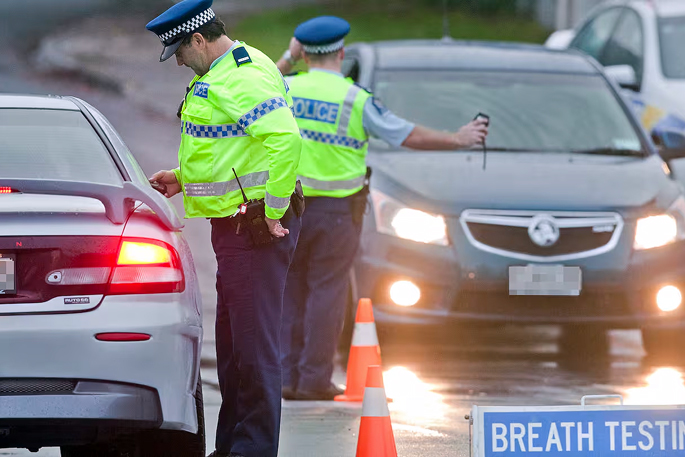

7 comments
Hmmm
Posted on 04-06-2024 09:54 | By Let's get real
There is an unacceptable culture around alcohol in NZ and the sooner we have a zero tolerance for alcohol being associated with driving the better.
Even bus and coach drivers are turning up to work intoxicated with either drink or drugs. One local hopper driver in the past was intoxicated and stood down, part way through a shift (kept quiet by management of course).
If people with a huge responsibility for paying passengers and other road users in smaller vehicles, are willing to take a chance, what hope is there for keeping alcohol and drugs off the road. There is only a token acknowledgement shown by many heavy vehicle companies towards drugs and alcohol and often it's the same drivers that are tested on random testing days, that are used to indicate compliance with the contract.
The Master
Posted on 04-06-2024 12:48 | By Ian Stevenson
Looks like the <20 year-old newbies are not changing their ways much, slow learners.... Whereas, the overall numbers of convictions show a reduction, that means the oldies are gradually learning VERY slowly....
Perhaps rather than a conviction, that these measures apply: -
1 Confiscate the vehicle, and
2 If the driver is not the registered owner, then the owner can buy it back at fair value, or
3 It is crushed for scape
4 Permitted to use a moped only
5 The license is canceled, and
6 Then have to undergo say 3-6 months rehab, and
7 After that, reapply for a new license as a learner etc.
8 In the case of three above, the value of the vehicle is deducted from wages
That would do it!
Drink & Driving
Posted on 04-06-2024 12:54 | By Noel Silver
Quite clearly the adverts on TV etc are a waste of money. Everyone caught should have an immobilizer fitted for a period of two years and until the unit shows no detection for a year before you can apply for its removal. This will get better results as the vehicle remains stationary so no accidents can occur.
@Noel Silver.
Posted on 04-06-2024 18:12 | By morepork
"Quite clearly the adverts on TV etc are a waste of money." No, it isn't "quite clearly". You have no idea what the levels MIGHT have been if there was NO anti-drink-driving campaign. But, I agree with you (and other posters) that we aren't going to fix this until we actually change a social attitude. Measures to enforce compliance (like the ones you suggest) MIGHT be helpful in terminal cases who are addicted and won't admit it, but as a general solution it comes down to changing minds. In the 1980s I had occasion to go and live in Germany. I was there for a number of years, on a number of occasions, and I was struck by their attitude to drink-driving. On one occasion I had lunch in a pub with some friends and I drank ONE 333ml beer. They insisted on running me back to work.
@Noel Silver (Part 2)
Posted on 04-06-2024 18:20 | By morepork
The following morning, one of the party from the previous lunch, turned up at my flat and ran me back to the pub so I could collect my car. Germans love to drink (and they have the best beers in the world), and they love to drive (they still have autobahns with no speed limits on sections of it, although this is under pressure and will probably disappear.) BUT they will NOT drink and drive. They consider it stupid, selfish, and dangerous. We consider it heroic. How many times have you listened to the office blow-hard skiting about how much he drank and got home safely? That guy, in Germany would find people turning away from him and singularly unimpressed by his stupidity. "You could have killed one of my family..." Who are the "grown-ups" here?
Selfish, senseless, stupidity.
Posted on 04-06-2024 18:30 | By morepork
So, you are prepared to put the lives of my family and people you don't even know, at risk, for the sake of your convenience? Too lazy, too disorganized, too selfish to even get an Uber or arrange a dedicated driver. You don't DESERVE to have a night out and if your friends allow it, they are just as senseless and shallow as you are. We cannot legislate against selfishness, stupidty, and irresponsibilty. We can set penalties, but they only deter people with the brains to recognize them. Don't wait until you wreck your own and someone else's life; just STOP doing it. Not because of any penalties it may incur, but because it is a stupid and selfish thing to do.
@ morepork
Posted on 05-06-2024 09:20 | By Yadick
Your last comment S,S,S.
Excellent and so true.
Fines need to be increased considerably and interlocks put onto vehicles of ALL offenders for 6 months to 3yrs depending on how far over the limit.
Leave a Comment
You must be logged in to make a comment.